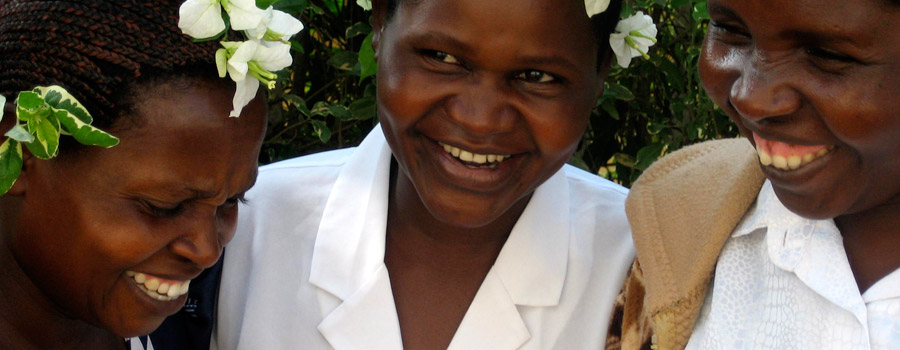Project and Meeting Reports
Levels for Facilities-Based Services for Fistula Care
To address the complexity of fistula repair services, Fistula Care developed a framework for a network of sites to facilitate prevention, diagnosis, limited treatment and referral, treatment of simple cases, treatment of complex cases, and the establishment of a site or sites capable of providing training. This document describes in detail the three levels of facility-based care that Fistula Care envisages.
Files: English (PDF, 35KB) and French (PDF, 34KB)
Meeting the Needs of Women with Fistula Deemed Incurable: Creating a Culture of Possibility
In September 2011, EngenderHealth’s Fistula Care project and the Harvard Humanitarian Initiative convened a meeting of international expert fistula practitioners to identify areas of consensus on minimum global standards for complex fistula care in low-resource settings. This report outlines programmatic and research gaps and priorities and includes specific recommendations to assist ministries of health, professional associations, and other key institutions in developing their own guidelines.
Files: English (PDF, 622KB) and French (PDF, 36KB)
Revitalizing the Partograph: Does the Evidence Support a Global Call to Action
EngenderHealth’s Fistula Care project and the Maternal Health Task Force brought together international experts in November 2011 to review evidence and make recommendations about the partograph, a decision-making tool for preventing and managing prolonged or obstructed labor. Correct use of the partograph can prevent serious complications, including ruptured uterus, obstetric fistula, and stillbirth. Yet after more than 50 years of training and investment in the partograph in low-resource settings, the partograph is used infrequently, and few health care workers understand how to complete it properly. This report explores the major health system challenges to partograph implementation and the evidence in favor of revitalizing its use, not only to manage labor effectively, but also to improve the overall quality of care offered to women and their babies during childbirth.
Files: English (PDF,
370KB) and French (PDF, 242KB)
Traumatic Gynecologic Fistula: A Consequence of Sexual Violence in Conflict Settings
In consultation with the Addis Ababa Fistula Hospital, the Ethiopia Society of Obstetricians and Gynecologists, and Synergie des Femmes pour les Victimes des Violences Sexuelles, the ACQUIRE Project cosponsored an international consultative conference on traumatic fistula in 2005. The meeting allowed participants to share current knowledge on traumatic fistula, discuss existing programmatic interventions, identify key success, challenges, and gaps, synthesize lessons learned, and develop recommendations and strategies.
Files: English (PDF, 487KB)
Urinary Catheterization for Primary and Secondary Prevention of Obstetric Fistula: A Consultative Meeting to Review and Standardize Current Guidelines and Practice
Evidence from the work of Dr. Kees Waaldijk in northern Nigeria suggests that women with obstetric fistula who present soon after the injury may heal spontaneously if the bladder is drained with a catheter. It is estimated that early management with a catheter could lead to closure of the fistula in 25% of cases. This important finding has the potential to allow some women to avoid the need for surgical repair of their fistula, which is both traumatic for women as well as a huge drain on scarce resources. Thus, the concept of treating fistula conservatively, and perhaps even preventing it by catheterization during or immediately after prolonged or obstructed labor, offers a promising alternative approach. This consultative meeting brought together a group of experienced Nigerian and international fistula surgeons, representatives of national and international professional nursing and midwifery associations, relevant officials from the Federal Ministry of Health, as well as national and international staff from the EngenderHealth-led Fistula Care project. The goal was to review current guidelines and practices, to discuss knowledge gaps, and to develop recommendations for standardized approaches to urinary catheterization for prevention and nonsurgical treatment of fistula. In preparation, Fistula Care conducted a review of literature pertinent to this topic and conducted an informal survey of current practices among Nigerian fistula service providers. Participants agreed on a simplified approach to catheterization for early management of fistula. The resulting recommendations will be disseminated to the Nigerian Ministry of Health and other relevant stakeholders, to facilitate the development and implementation of standardized national (and global) guidelines.
Files: English (PDF, 1.1MB) and French (PDF, 517KB)
![[ Skip Navigation ]](../../data/images/c.gif)



